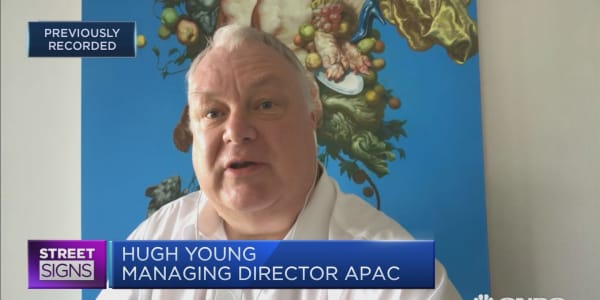South Africa's central bank raised its key interest rate to 5.5 percent on Wednesday as concerns grew over its weakening currency amid an emerging market rout.
The bank hiked its key interest rate - the rate at which it lends to commercial banks - 50 basis points (bps) to 5.5 percent. The South African rand extended losses against the dollar, falling to a five year low of around 11.26 after the surprise move.
South African Reserve Bank (SARB) Governor Gill Marcus said the bank's monetary policy committee had carefully considered South Africa's slowing economic growth on the one hand, and rising inflation outlook and depreciating currency before it decided to increase the rate.
She said the bank would continue to monitor the situation closely and said she had not been influenced by a similar move in Turkey.
There had been speculation that the bank could be the next to hike interest rates, although analysts told CNBC they were skeptical the bank would act just now.
Central banks in Turkey and India have already hiked rates to protect their currencies from sharp losses. Worries over China's growth and ongoing concerns over further tapering by the Federal Reserve prompted the selloff, which started last week.
Emerging market currencies, including the Argentinian peso, Turkish lira, the South African rand and the Brazilian real have all suffered in the sharp selloff which began last Friday.
(Read more: Emerging-market currency 'contagion' spreads)
The losses prompted governments from Argentina to India to intervene in currency markets to shore up their battered currencies. On Tuesday Turkey's central bank reacted aggressively to defend the lira, increasing the overnight lending rate from 7.75 percent to 12 percent. The lira immediately strengthened to 2.2 to the dollar from 2.253 after the decision.
Earlier on Monday, the Reserve Bank of India (RBI) had also hiked its benchmark rate by 25 basis points (bps) to fend off concerns over inflation, despite slowing economic growth.
Central banks are trying to show the world that they are doing enough to protect their currencies and markets as capital inflows -- which helped emerging markets to prosper – dry up on the back of tapering by the U.S. Federal Reserve.
The timing of the central bank announcements is particularly acute given that the Fed is expected to announce a further cutback of $10 billion from its current $75-billion-a-month bond-buying program on Wednesday.
For emerging markets like South Africa, the tapering comes at a time of slowing growth. South Africa grew by 0.7 percent in the third quarter of 2013, the slowest pace in more than four years, and sticky inflation stood at 5.4 percent in December.
Marcus sounded a warning note that rand weakness had been exacerbated by domestic matters such as labor disputes and current account deficit. The growth outlook remained subdued and employment creation remained a concern, she said.
She added that the "high degree of turbulence" seen in emerging markets of late -- with depreciating currencies, rising inflation and capital outflows -- since the U.S. Federal Reserve decided to start tapering its monetary policy program posed major "policy challenges" for emerging economies.
(Read more: What Mandela meantto South Africa's economy)
- By CNBC's Holly Ellyatt, follow her on Twitter @HollyEllyatt.





